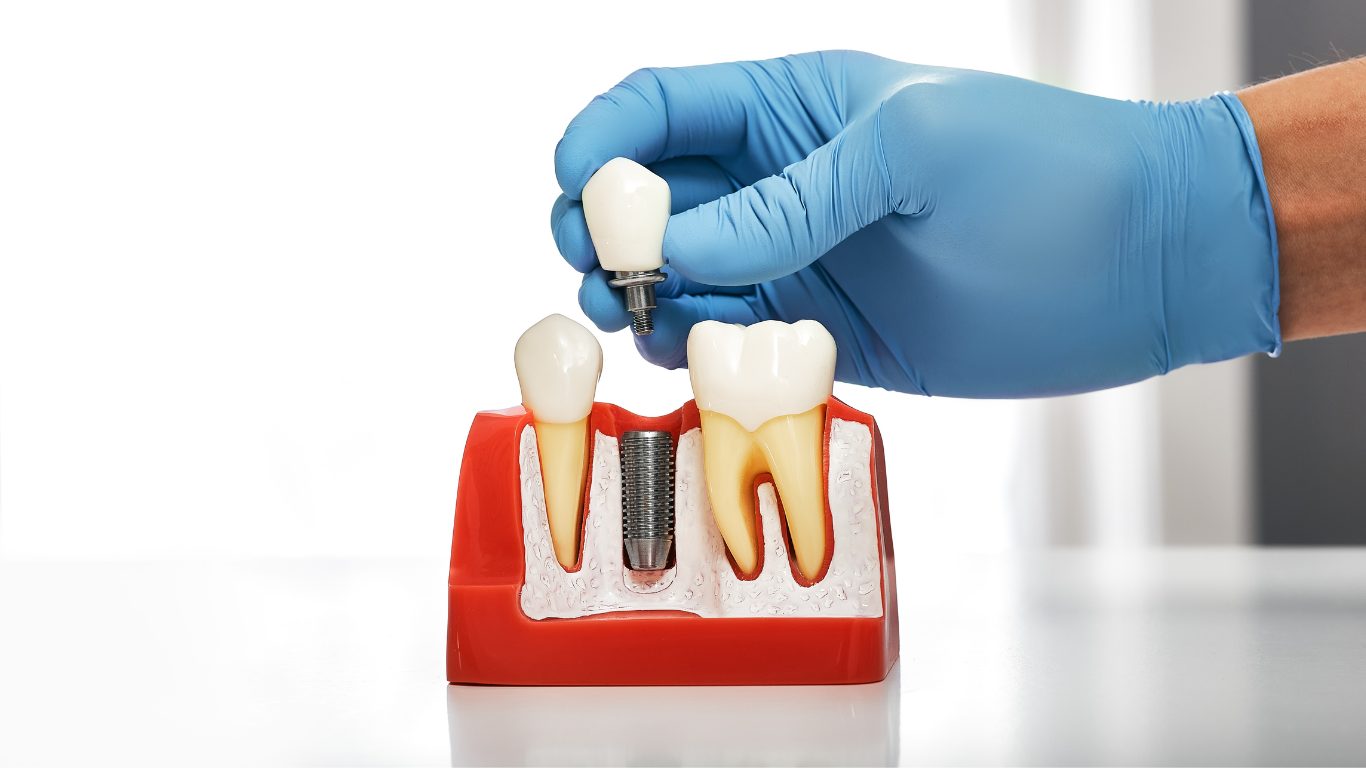
Our Top Cosmetic Dentistry FAQs
July 31, 2023
Why Do I Have White Spots on My Teeth?
August 28, 2023Key Takeaways:
Durability and Longevity:
Dental implants are designed to last longer than bridges, often lasting a lifetime with proper care. Bridges, while durable, typically need replacement after 10-15 years due to wear and tear or changes in the surrounding teeth.
Impact on Adjacent Teeth:
Implants are standalone solutions that do not rely on neighboring teeth for support. Bridges, on the other hand, require the preparation and crowning of adjacent teeth, which can potentially weaken them over time.
Cost and Maintenance:
Implants tend to have higher upfront costs compared to bridges but often result in lower long-term maintenance costs. Bridges may require more frequent replacements or adjustments, increasing overall expenses over time.
Navigating the world of dental procedures can be a daunting task. For example, if you are weighing the pros and cons of dental implants vs. bridges, it’s easy to feel overwhelmed. Both are effective solutions for missing teeth.
Join us as we delve into the specifics of each and whether they are right for you. Keep in mind this article isn’t a substitute for personal dental care. It is purely educational with the goal of helping you make an informed decision about what’s best for your dental health.
Dental Implants and Bridges 101
A dental bridge is a type of dental restoration used to replace one or more missing teeth. It literally “bridges” the gap where the teeth are missing. A bridge is made up of two or more crowns for the teeth on either side of the gap (these two or more anchoring teeth are called abutment teeth) and a false tooth/teeth in between.
These false teeth are also called pontics. They may be made from gold, alloys, porcelain, or a composite or combination of these materials. Dental bridges are supported and held in place by your natural teeth.
Bridges can help restore your smile, maintain the shape of your face, improve your bite properly by replacing missing teeth, and prevent remaining teeth from drifting out of position.
Dental implants are another long-term solution to missing teeth. They consist of artificial screw-like tooth roots with caps or false teeth on top. Dental implants are placed within your jawbone, where they bond with your natural bone. They form a sturdy base supporting one or more crowns. The crowns are custom-made to match your natural teeth and fit your mouth.
Dentures, bridges, or single teeth attached to the implants won’t slip or shift in your mouth for a better eating and speaking experience. This secure fit also helps man-made teeth feel more natural than conventional bridges or dentures.
Now that you understand what bridges and implants are, here are some of the pros and cons of each.
Pros and Cons of Dental Implants
For many people, dental implants are a popular option since they have several key advantages:
- They look natural and feel more comfortable since dental implants are designed to look, feel, and function like your natural teeth.
- They offer a long-term solution. While bridges and dentures may need to be replaced every 5-10 years, dental implants are designed to last longer when properly placed and cared for.
- The implants help preserve and stimulate your natural bone density, and it helps prevent bone loss.
- Implants have no impact on healthy teeth; unlike a dental bridge, implants do not require altering your other healthy teeth. This leaves more of your natural teeth intact for better long-term oral health.
- Implants make it easier to eat and speak naturally. Because they become part of you, implants eliminate the discomfort of removable dentures and the risk of slipping or moving when eating and speaking.
As for who makes a good candidate for dental implants, generally, you might be a good candidate for implants if you:
- Have one or more missing teeth
- You are fully grown
- Have adequate bone to secure the implants or are able to have a bone graft
- Have healthy gums and soft tissues
- Don’t have health conditions that will affect bone healing
- Prefer not to wear dentures
- Want to improve your speech
- Are you willing to commit several months to the process
However, consulting with a dentist to evaluate your needs and potential risks is essential. Every medical and dental procedure carries some risk. The risks tend to be higher for people with conditions or risk factors that contraindicate the procedure. Some risks associated with implants include sinus or nerve damage depending on the placement, infection, and a small risk your body might reject the implants.
Pros and Cons of Bridges
For many, implants are the most attractive option; however, bridges are also beneficial. Some of the advantages of bridges include:
- Bridges improve your appearance after an extraction since bridges replace missing teeth and help maintain the shape of your face. They also fill in the gaps in your smile.
- They also help improve function since you can bite down, eat, and speak better than you could with missing teeth.
- They keep your remaining natural teeth from shifting. When there’s a gap from a missing tooth, the remaining teeth can move into that space. A bridge keeps the other teeth in place.
- They are a less invasive option. Unlike implants, bridges don’t require surgery.
- Bridges tend to be less expensive than implants.
The main downsides are the bridges will need to be replaced every ten years or so. Your adjacent teeth will be filed or treated to help hold the bridge in place, which may result in other oral health problems in the future. There’s always a risk of implants and dentures slipping, which can be uncomfortable, inconvenient, or embarrassing.
You may be a good candidate for bridges if you are missing one or more teeth and need an affordable or less invasive solution. For example, even if you experience bone loss from gum disease or tooth loss, you may be able to have a bridge still even if you are not a good candidate for implants.
Which Option Is Right for You?
When it comes to dental care, the best choice depends on your needs, budget, medical history, and priorities. In the hands of a skilled dentist, any of these treatments may improve your well-being and quality of life. After all, who doesn’t want to be able to smile and face the world with confidence?
Whichever option you choose, ask your dentist how to best maintain your bridges or implants and adapt your at-home oral health routine. Daily brushing and flossing will still be part of your routine, but there may also be some additional steps or variations to maintain your dental appliance.Your next step is a consultation and possibly an examination. If you are in the Charlotte, NC, area and need dental care, contact Southview Dentistry to schedule an appointment.




